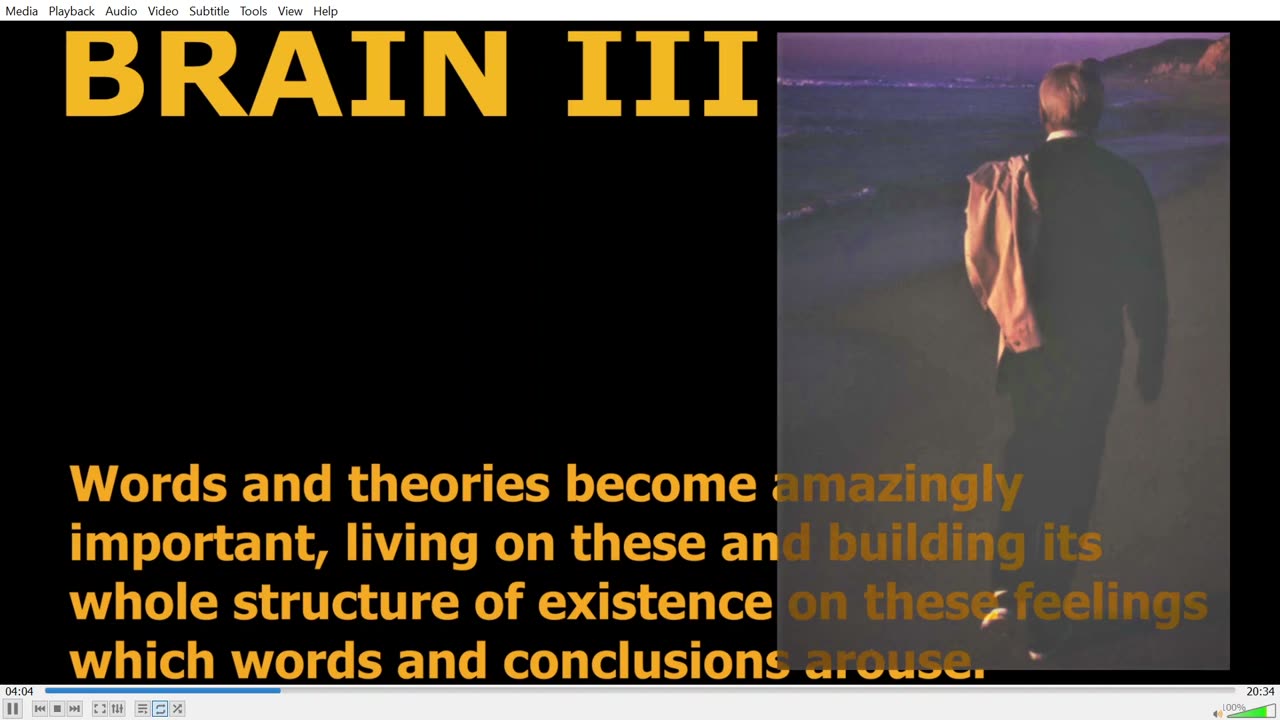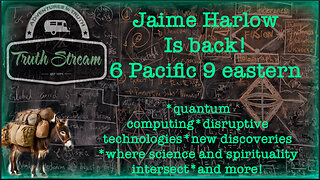Premium Only Content

BRAIN III by J Krishnamurti// मस्तिष्क क्या करता है ? जे ❤कृष्णमुर्ति ❤😊💗
BRAIN III by J Krishnamurti// मस्तिष्क क्या करता है ? जे ❤कृष्णमुर्ति ❤😊💗
The brain is restless, an astonishingly sensitive instrument. It's always receiving impressions, interpreting them, storing them away; it is never still, waking or sleeping. Its concern is survival and security, the inherited animal responses; on the basis of these, its cunning devices are built, within and without; its gods, its virtues, its moralities are its defences; its ambitions, desires, compulsions and conformities are the urges of survival and security. Being highly sensitive, the brain with its machinery of thought, begins the cultivation of time, the yesterdays, the today and the many tomorrows; this gives it an opportunity of postponement and fulfilment; the postponement, the ideal and the fulfilment are the continuity of itself. But in this there is always sorrow; from this there is the flight into belief, dogma, action and into multiple forms of entertainment, including the religious rituals. But there is always death and its fear; thought then seeks comfort and escape in rational and irrational beliefs, hopes, conclusions. Words and theories become amazingly important, living on these and building its whole structure of existence on these feelings which words and conclusions arouse. The brain and its thought function at a very superficial level, however deeply thought may have hoped it has journeyed. For thought, however experienced, however clever and erudite, is superficial. The brain and its activities are a fragment of the whole totality of life; the fragment has become completely important to itself and its relationship to other fragments. This fragmentation and the contradiction it breeds is its very existence; it cannot understand the whole and when it attempts to formulate the totality of life, it can only think in terms of opposites and reactions which only breed conflict, confusion and misery. Thought can never understand or formulate the whole of life. Only when the brain and its thought are completely still, not asleep or drugged by discipline, compulsion, or hypnotized, then only is there the awareness of the whole. The brain which is so astonishingly sensitive can be still, still in its sensitivity, widely and deeply attentive but entirely quiet. When time and its measure cease then only is there the whole, the unknowable.
-
 1:23:30
1:23:30
TruthStream with Joe and Scott
2 days agoJaime Harlow is back! #483
6.9K10 -
 1:32
1:32
Gaming on Rumble
2 days agoWhat is the Rumble Creator Program?!?! | Lvl UP
50.1K4 -
 10:34:09
10:34:09
Rallied
12 hours ago $16.22 earnedSolo Challenges ALL DAY
244K8 -
 1:39:43
1:39:43
Brandon Gentile
2 days agoTOP Money Expert: Bitcoin Will Keep Setting All-Time Highs Beyond $10m
5.32K -
 2:02:28
2:02:28
Badlands Media
1 day agoDevolution Power Hour Ep. 385
59.4K25 -
 1:56:48
1:56:48
Tundra Tactical
5 hours ago $11.00 earnedFull Semi-Auto Comedy Hour
27.5K2 -
 2:07:31
2:07:31
The Connect: With Johnny Mitchell
14 hours ago $6.30 earnedSecrets Of The Cocaine Cowboys: Miami Drug Lord Reveals Truth About His BILLION-DOLLAR Coke Empire
27K1 -
 1:55:52
1:55:52
BlackDiamondGunsandGear
1 day agoGlocks Want Gun Control? // Trump Tramples on your Rights? // After Hours Armory
27.6K2 -
 1:55:52
1:55:52
DLDAfterDark
10 hours ago $3.21 earnedDLD Live! Trump - Flag Burning - Glock & Gun Control - Martial Law Light?? - After Hours Armory
22.7K3 -
 13:46:18
13:46:18
GritsGG
16 hours agoRumble Customs! 3515 Ws! 🫡!
92.9K